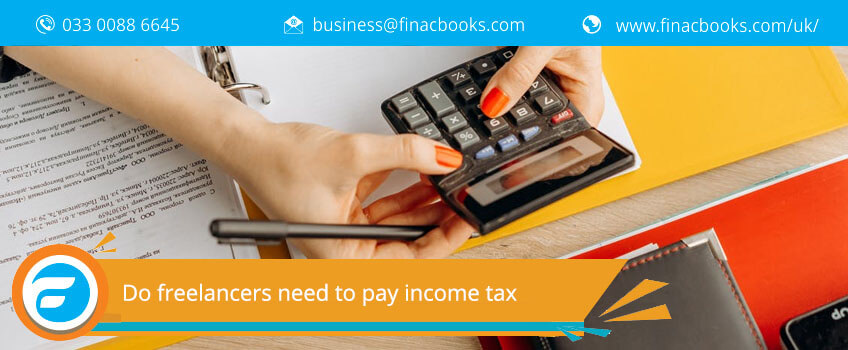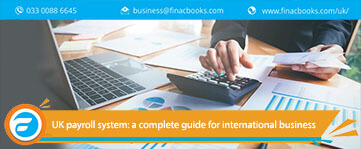During the past two to three years, we have faced many challenges because of the pandemic; most businesses experienced crises, and many people went unemployed. However, where there are challenges, the human spirit finds a way.
People are adopting new trends in the job market and can provide numerous job opportunities for each other. Freelancer is one of the most prominent set marks in the UK. To date, approximately 4.1 million people work as freelancers in the UK.

In the UK, working as a freelancer entails being self-employed. There is a considerable difference between how independent contractors and employees are taxed in the UK.
What is the self-employment tax system in the UK?
An individual who works as a freelancer for HMRC, Her Majesty's Revenue and Customs, accumulates tax. Freelancing is not yet an official term in the UK.
Depending on your work category, HMRC determines your taxes. You must disclose your job to file taxes, regardless of whether you earn as a sole trader, business partner, or a limited company.
In the UK, self-employed individuals may be required to pay income tax, national insurance contributions, and, in some circumstances, VAT. Individuals must complete a self-assessment form each year to file taxes in the UK for self-employed persons.
Taxes on the residents' worldwide income will be due. However, non-residents are limited to paying taxes in their home country. If your company is limited, you must pay corporation tax.
What are the tax rates for freelancers?
So, if you are wondering what the freelancer tax rates are, do not worry. We compiled a complete list of freelance tax rates for 2022. You can visit the government website for additional information if you want more details about it. You may always contact a certified public accountant to respond to your inquiries if you want further assistance because, in the future, you will reach that point where you need professional help to expand your business.
However, let's take a slight glimpse at the table:
| Band | Taxable income | Tax rate |
|---|---|---|
| Personal Allowance | Up to £12,570 | 0% |
| Basic Rate | £12,751 to £50,000 | 20% |
| Higher Rate | £50,001 to £150,000 | 40% |
| Additional Rate | over £150,000 | 45% |
What is my tax obligation as a freelancer?
Being your boss is an excellent idea; if you want to work for yourself, make yourself able to provide work for others as well. Well! Some people may not think freelancing is wise, but we know it liberates you.
Freelancing may seem appealing, but there are still a bunch of responsibilities you must be liable for, such as paying national insurance and freelancing taxes, which means you are contributing to the country's growth. If you are still doubtful, let us describe the depth of it and make the tax payment understandable to you.
Do I complete the registration as a freelancer in the UK?
Here are the essential steps to registering for self-assessment in the UK. Read below:
- An individual must have a user ID and password to log into the Government Gateway.
- The business account is necessary.
- Create the account as a company.
- You will be given a 10-digit Unique Taxpayer Reference to file the self-assessment return.
- Send the tax return details by the deadline.
- You must pay the self-assessment charge before January 31.
When should I file taxes for freelancers?
Knowing what salary you should earn is essential to being liable for tax payments. In England, you should make at least £12,500.
Is freelance work subject to tax?
In the Uk, it is much needed that you are paying tax as a freelancer based on your revenue. It differs from a fixed amount.
There are three bands of tax to pay.
| Basic rates | 20% |
| Higher rates | 40% |
| Advanced rates | 45% |
Visit the HMRC website for current rates for this fiscal year's freelancing income tax. Alternatively, you might evaluate yourself based on the method below while considering your total profit from freelancing.
As soon as your freelancing profits are added to your employment income, you'll be charged a 40% tax rate.
For example, you earn £35,000 as a freelancer in a mechanical workshop. Your expenses are £3,000, so your profit is £32,000. Then you worked part-time in a restaurant, making £15,000 extra.
In total, you earn £47,000. You are tax-free on your first £12,500. From £12,500 to £47,000, 20% of taxes would apply, and 40% would apply to the remaining amount.
When does a freelancer pay taxes?
As you know now, as a responsible citizen, you must report your freelancer income until January 31, following the tax year's end on April 5.
The income you receive from freelancing is not taxed, in contrast to the revenue from your permanent job, and must be notified to HMRC.
What are the tax deductions and credits for freelancers in the UK?
As part of the permissible expenditures, the HMRC offers a variety of fees. The following list includes some of the most notable:
- Utilises and Rent
- Staff cost
- Office cost
- The financial price and bank charges
- Travel cost
- Travel fees related to business
- Advertising and Marketing fees
Business expenses will not include personal costs taken from the business income. Owning a business means filing taxes differently. You must therefore keep a record of personal purchases from that company and report them in this case.
What are the tax and national insurance calculators for freelancers in the UK?
To comprehend the National Insurance and Tax. We may suggest using a self-employed tax calculator in the UK as a freelancer. Your ability to pay Class 4 National Insurance depends on how well your self-employed firm performs.
The payments for National Insurance will be delivered on your self-assessment tax returns, much like the taxes you pay. On the contrary, be aware of your profits' National Insurance tax rate. For the fiscal year 2022-23, the rate is 10.25% for earnings between £12,570 and £50,270 and 3.25% for profits beyond £50,270. Individuals should be aware of these simple tax rates for freelancers. Apart from the National Insurance, you must know about the VAT rates.
Is it necessary to pay VAT as a freelancer?
Well, it all depends on your yearly turnover. As of now, if your revenue is enough or you gain a profit above the non-tax rates, then you are eligible to pay VAT as a freelancer. The taxable VAT threshold for 2022-2023 is £85,000. If you work for yourself, you can pay your VAT tax online. It is your responsibility to provide HMRC with information regarding your VAT return. You will have to pay various VAT fees depending on your business type.
Any Questions? Request a callback from our Tax Experts.


































